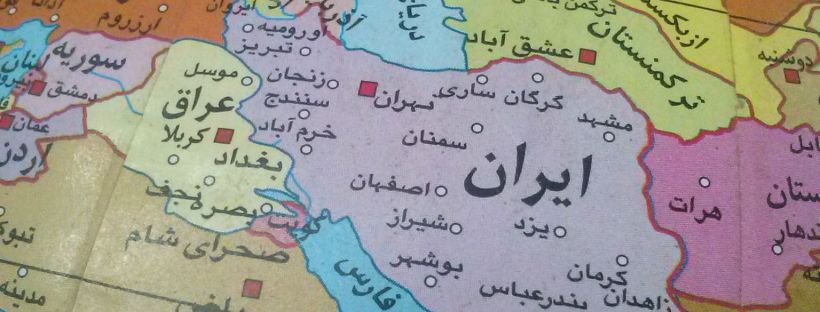Ruth Wodak is Emeritus Distinguished Professor and Chair in Discourse Studies at Lancaster University. Her research is mainly located in Discourse Studies and Critical Discourse Analysis. She elaborated the Discourse Historical Approach, an interdisciplinary approach to analysing the change of discursive practices over time and in various genres.
She recently published with Sage her last book. The Politics of Fear – What Right-Wing Populist Discourses Mean.
It is with pleasure that POP asked her some questions about the discourse of contemporary populism compared to that of radical right wing parties, as well as about left wing populism, and the role of the mainstream parties. Enjoy the conversation with professor Wodak.
 Professor Wodak, in the last years you have intensively studied the characteristics of the right-wing populist discourse. Could you provide a brief overview of what emerged from your analysis?
Professor Wodak, in the last years you have intensively studied the characteristics of the right-wing populist discourse. Could you provide a brief overview of what emerged from your analysis?
Very briefly at first: It is important to state that – although there are certainly some general, shared characteristics – right-wing populist parties in Europe differ significantly due to local traditions, histories, socio-political contexts, etc. What they nevertheless all share is a nativist nationalism, i.e., defining who the ‘real’ Austrian, British, Finnish man/woman are who make up the community of Austrians, Finns, British; and that nation states are again strongly defined via body- and border politics. This kind of nationalism leads to exclusionary ideologies, where ‘the people’ are not defined via citizenship, but on nativist grounds. In any case, RWP (right-wing populism) is not only – as frequently claimed – a question of rhetoric or performance but very much of ideologies. Anti-intellectualism and historical revisionism are also important characteristics of such parties.
- What does distinguish right-wing populist parties from nativist or radical right wing parties?
There is – as stated above – a blurring of boundaries or even a continuum from less to more extreme beliefs and ideologies. Some RWP are ‘softer’ and code their nativist ideas. But these are nevertheless ubiquitous. I distinguish between more RWPs and real Neo-Nazis or also fascist parties (like the NPD, Jobbik, BNP, or Golden Dawn) who make physical violence part of their program.
- Is it possible to claim that the family of radical right parties – which was successful in the 80s and 90s – has been replaced by its populist surrogate?
The FPÖ has not changed – it became successful end of the 1980s with the leadership of Jörg Haider and has retained its roots and ideologies with Haider’s successor HC Strache. RWP address many electorates (“Anything goes”), often with contradictory messages, explicitly or softer. Thus, a big change has not been observed, in rhetoric or in contents. Of course, some new themes have appeared depending on new global and local developments. There are, however, RWPs who have just one main focus (Wilders, UKIP with an anti-Islam/anti-immigration focus) and other parties who have many programmatic interests, like the SVP, Forza Italia, Front National, the Sweden Democrats, or the FPÖ, depending on their socio-political contexts and their very different pasts.
-
Are right-wing populist parties successful in framing media debates and setting the national political agenda? What is the role of the media in this situation?
RWP have two salient strategies with which they successfully and frequently dominate the agenda: first, the strategy of provocation: again and again, they trigger the so-called RWP Perpetuum Mobile in the media, a recursive dynamic consisting of wrong accusations, victim-perpetrator reversal, conspiracy theories, scape-goating, etc. The second important discursive-rhetorical strategy is ‘calculated ambivalence’ – addressing multiple audiences with contradictory messages at the same time (see my book 2015 for extensive discussions and details).
- Is the right-wing populist discourse similar everywhere in Europe? Or did you notice any specific characteristics at local and national level?
They differ according to fascist or non-fascist pasts; colonial or non-colonial pasts; having belonged to the Eastern Bloc or to the West; North or South; Social Welfare Country or not; etc.
- Do you think we are experiencing a “populistization” of European politics? In other words, populist parties are more and more successful; does it mean that also other parties try to introduce populist elements in their rhetoric in order to become more likeable?
Every party and every politician is also populist and speaks or wants to speak for their voters, i.e. ‘the people’. Thus, it depends on the specific content, on how ‘the people’ are defined and what the party promotes. Currently, we experience a ‘Haiderisation’ of Europe and, at the same time, a strong tendency of – what I label – ‘normalization’: Mainstream parties try to retain their voters by accommodating or even overtaking these parties with even more extreme right-wing agenda. Such politics tends to be unsuccessful – right-wing populist voters tend to vote for the traditional RWP parties and not artificial RWP parties. Hence, mainstream parties seem to lose more and more voters.
- In particular, can we say that mainstream parties are increasingly exploiting the situation of migrants and asylum seekers in order to subtract from right-wing populist parties one of their “piece de resistance”?
Yes, although again, one cannot generalize – the Green parties and also Socialist/Social-Democratic parties tend to offer alternatives.
- Right-wing populist parties are riding high in this Europe characterized by social insecurities, economic crisis, and cultural conflicts. Which is the secret of their winning formula? Why do they convince the electorates? Is it simply a way of exploiting a temporary situation, or do they rather interpret a new way of doing politics that will characterize Europe for the foreseeable future?
In my view, exploiting insecurities and frequently legitimating anxieties by a politics of fear and by simplistic dichotomist explanations are some of the winning tricks. Creating scape-goats to be blamed for all current woes (Roma, Muslims, Jews, migrants, refugees) is not a new strategy, but unfortunately very effective.
- Did you notice, in right-wing populist discourses, a prevailing discrimination towards Muslim people? Or does anti-Semitism still provide the perfect scapegoat?
Usually, both Muslim and Jews are discriminated against, albeit with different stereotypes. Frequently, stereotypes also go together. In Western Europe, anti-Islam and anti-Israel tendencies are strong; in Central and Eastern Europe, very traditional antisemitism still occurs, alongside Islamophobia and anti-Roma discrimination (see Hungary, Bulgaria, Greece, Poland, Romania, Ukraine, Russia).
-
What do you think, on the other hand, of the discourse of left-wing populist parties like Syriza or Podemos? Which are the common elements with the right-wing populist parties and, on the other hand, in which regard do they essentially differ?
Very different ‘people’ are addressed by such parties, in an inclusive way, and without discriminatory and exclusionary contents and rhetoric – a totally different ideology. Although some left-wing populist parties like Syriza are also nationalist, they do not endorse a nativist nationalism. Other leftwing populist parties are more internationally oriented and address their traditional voters (working class) with left-wing programs (Die Linke in Germany is a good example for such an ideology). Also, anti-immigration, racism and discrimination are not on their agenda. They are not oriented against intellectuals (Podemos, Syriza). Hence, commonalities only exist in being closer to ‘the people’ (but defined very differently!) and anti-elitist.







7 thoughts on “Interview #5 – Ruth Wodak: The Politics of Fear. What Right-Wing Populist Discourses Mean”